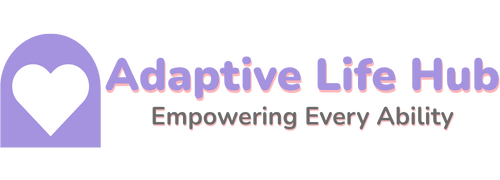Anxiety? Depression?: Hint: You May Have Undiagnosed ADD or PTSD.
$9.99
I have been a physician for over thirty years, and a student of human nature for my entire life. From my earliest days in medicine, many patients seeking help for anxiety, depression, or substance abuse have shared their stories with me, often helping to reveal the root cause of their condition. I have felt compelled to share these stories with colleagues, anonymously, because they were too fascinating to keep to myself! Now, I hope to share some of these stories with you.Over the course of my many years in family practice, I have come to recognize patterns of behavior in my patients that have not been adequately described or explained in medical textbooks, journals, or lectures. Conditions such as anxiety, depression, alcoholism, and substance abuse, are misunderstood by medical and mental health professionals. In the majority of patients, these are symptoms of an underlying condition, not the root cause of their illness.Frequently, post-traumatic stress disorder (PTSD) or attention deficit disorder (ADD) is the underlying cause of the anxiety, depression, and addiction. Since many professionals are treating the symptoms of anxiety and depression instead of the PTSD or ADD that is causing those symptoms, it should be no surprise that so many people are not getting better. By recognizing and embracing the root causes of anxiety and depression, I have put into practice the principles and the treatment of what I have learned over the course of my career with amazing and life changing results for many of my patients.Situational anxiety and depression occur in everyone at some point in their lives. I call this ‘normal’. Our mood is altered by life’s challenges—a death in the family, the breakup of a relationship, the loss of a job, financial difficulties, being a teenager, or being the parent of a teenager! Many people need medication and psychotherapy to help them cope with the anxious and depressed mood that comes with these challenges. Furthermore, some anxiety and depression are hereditary. There is a chemical imbalance in the brain that runs in the family and is in their DNA. The neurotransmitters serotonin, dopamine, norepinephrine, and others are over-or underproduced by the neurons in the brain, creating chronic anxiety and depression without an obvious situational or underlying cause.I have written this book for the majority of people who are anxious and depressed but do not have either situational or hereditary anxiety or depression. It is my assertion that you may have underlying and undiagnosed PTSD or ADD. Your response may be, “How could I have PTSD or ADD? I have a responsible job, a spouse, children, and a mortgage.” My answer is that although you’re successful, you are still troubled by your past emotional traumas. You think that they’re in the past and resolved. However, your symptoms of anxiety and depression tell me that these are not scars—they are unresolved, open wounds. You revisit them many days and most nights when you obsess about the past and worry about the future. This worrying is toxic and only known to you, not to others around you.Childhood, adolescence, and young adulthood are where major emotional traumas most often occur. Today’s emotional distress follows a well-worn pattern of anxiety and depression that has been present for years or perhaps decades. To understand your emotions today, we need to first examine your childhood, at your very first visit. This is a radical concept and would be considered heresy in the mental health community today. However, the current approach to mental health is working poorly. Studies tell us that almost seven million adults in our country have chronic Generalized Anxiety Disorder. Another six million adults have Panic Disorder, and sixteen million have Major Depressive Disorder, including three million depressed patients who have chronic, persistent depression. We need a new and fundamentally different approach to psychiatry and psychotherapy.
Publisher : Jeffrey Pinsk
Publication date : October 7, 2019
Language : English
Print length : 144 pages
ISBN-10 : 1734124202
ISBN-13 : 978-1734124200
Item Weight : 7.8 ounces
Dimensions : 5.25 x 0.36 x 8 inches
Best Sellers Rank: #1,799,466 in Books (See Top 100 in Books) #31,262 in Mental Health (Books) #71,816 in Medical Books (Books)
Customer Reviews: 4.6 4.6 out of 5 stars 19 ratings var dpAcrHasRegisteredArcLinkClickAction; P.when(‘A’, ‘ready’).execute(function(A) { if (dpAcrHasRegisteredArcLinkClickAction !== true) { dpAcrHasRegisteredArcLinkClickAction = true; A.declarative( ‘acrLink-click-metrics’, ‘click’, { “allowLinkDefault”: true }, function (event) { if (window.ue) { ue.count(“acrLinkClickCount”, (ue.count(“acrLinkClickCount”) || 0) + 1); } } ); } }); P.when(‘A’, ‘cf’).execute(function(A) { A.declarative(‘acrStarsLink-click-metrics’, ‘click’, { “allowLinkDefault” : true }, function(event){ if(window.ue) { ue.count(“acrStarsLinkWithPopoverClickCount”, (ue.count(“acrStarsLinkWithPopoverClickCount”) || 0) + 1); } }); });








There are no reviews yet.